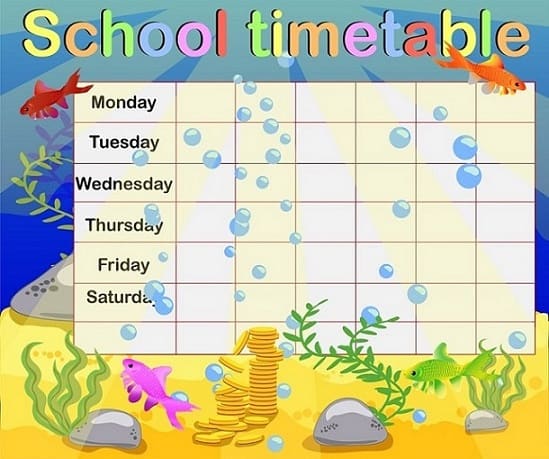Looking for an unbiased homeschool resource that doesn’t have a hidden agenda? You’ve come to the right place to learn how to homeschool in Montana.
To homeschool in Montana, a parent or guardian should become familiar with Montana homeschooling laws and regulations. Families must decide on a curriculum that fits their needs and be prepared for the self-discipline required to maintain a robust academic schedule.

How to Homeschool in Montana
Homeschooling in Montana is a legal option for parents who wish to provide their children with an alternative education outside of a traditional public or private school setting. If you are considering homeschooling in Montana, here are the steps you can take to get started:
- Familiarize yourself with Montana’s homeschooling laws: In Montana, homeschooling is regulated by the Office of Public Instruction (OPI). The OPI has published guidelines for homeschooling in Montana, which outline the requirements that homeschooling families must meet in order to comply with state law. These guidelines can be found on the OPI website.
- Notify the OPI of your intention to homeschool: Montana law requires parents to notify the OPI of their intention to homeschool their children. This can be done by completing and submitting a “Notice of Intent to Homeschool” form, which is available on the OPI website.
- Develop a plan for your child’s education: Once you have notified the OPI of your intention to homeschool, you will need to develop a plan for your child’s education. This plan should outline the subjects you will cover, the materials you will use, and the goals you have for your child’s education. It’s important to be as specific as possible in your plan, as this will help ensure that your child is receiving a high-quality education.
- Keep records of your child’s progress: As a homeschooling parent in Montana, you are required to keep records of your child’s progress. This can include things like attendance records, graded work, and test scores. These records should be kept on file and made available to the OPI upon request.
- Participate in evaluations: Montana law requires homeschooling families to participate in evaluations of their child’s progress. These evaluations can be conducted by a professional educator or by a qualified individual approved by the OPI. The frequency of these evaluations will depend on your child’s age and the specific requirements of the OPI.
By following these steps, you can successfully homeschool your child in Montana and ensure that they receive a high-quality education that meets their needs and interests.

Free Montana Homeschool Programs
In Montana, homeschooling provides parents the opportunity to design a high-caliber learning plan that is tailored to their child’s particular needs and goals. Plus, there are several free and excellent resources available for parents to create a well-rounded education program.
Homeschoolers in Montana can access free curriculum guides, printables such as lesson plans and activity sheets, plus online support networks.
Parents of homeschooled students can find various activities, classes, and programs all over the state, allowing them to provide an interesting academic experience that follows their beliefs.
Montana is an excellent choice for families who want to access free homeschool opportunities due to its wide variety of resources.
The Office of Public Instruction in Montana offers a Home School Informational Packet with additional resources for homeschooling parents living in the state.
HSLDA is an excellent source of information for homeschooling in Montana, as they offer webinars, articles, and updates about the latest regulations.
Between 2019 to 2020, the percentage of homeschooled students changed from 3.4% to 9%.
Does Homeschool Have to be Accredited in Montana?
For Montana families, homeschooling offers the ability to customize their children’s educational experience, but there are a few important legal regulations. Homeschools don’t need to go through the approval process mandated for public and private institutions in Montana.
In order to register, parents must provide the school district with immunization records, transcripts from previous schools, assessments, and other documents.
It’s important for homeschoolers to stay informed about any changes in their state’s laws regarding homeschooling.
In Montana, homeschool accreditation is not mandated by law; nevertheless, families should make sure they know the local laws on home education.
67% of the homeschooled students successfully graduate from college.
Montana Accredited Homeschool Programs
To become accredited, homeschools must provide enrollment and attendance documents, keep accurate grading records, administer yearly standardized tests approved by the state, appoint a supervising teacher who has completed at least high school education or higher and stay updated on all mandated curriculum alterations.
Private school programs that are accredited must ensure that their admission policies adhere to relevant laws and regulations, in order to meet state compulsory attendance requirements.
Accredited homeschooling gives parents the opportunity to provide quality education to their children in the comfort of their own homes.

Create a Designated Learning Place
Homeschoolers should have a specific area set aside for learning, to help establish a daily routine and provide an environment where their child can concentrate on schoolwork.
A dining table is an ideal spot for studying. It’s easily cleared off at the end of each day which allows it to be used for eating as well.
You can also provide your child with their own desk in their bedroom for added privacy and the opportunity to decorate it. Whatever you decide, be sure to create an environment that helps them focus on learning.
Over 300 million students were homeschooled as a result of the COVID-19 pandemic.
Stay On Track with a Daily Schedule
Sticking to a daily schedule for homeschooling has many advantages; here are some of them:
- Establishing a daily routine can help homeschoolers prioritize tasks, complete more in less time, and improve productivity. Families with multiple students or other outside commitments may particularly benefit from this strategy.
- Effective time management begins with planning. A daily schedule makes it easier to keep track of what needs to be done and when, and prevents feeling rushed or overwhelmed. Allocating specific blocks of time to tasks can help your family stay organized.
- Homeschooling can provide a sense of structure and regularity, especially beneficial for kids accustomed to attending a traditional school. This can make them feel safer and more prepared to learn.
- Families can benefit from daily schedules to stay accountable and meet their homeschooling objectives. This is important for those who tend to be easily distracted or delay their tasks.
- Having a daily schedule in place can facilitate better communication among family members, helping to avoid misunderstandings and building a stronger bond between them.

Ease Into It
Homeschooling for new parents can be a big shift, so it’s crucial to not apply excessive pressure from the start. It is best to ease into this transition and move forward at a steady pace.
Homeschooling parents can begin with just a few basic supplies and then build on their resources as they get more confident with the homeschooling process.
When it comes to homeschooling, there are numerous options, so you should find one that works best for your family. Don’t be afraid to venture out and experiment with different techniques; the less stressed you feel, the more successful your learning experience is likely to be.
Regardless of the educational level of their parents, homeschooled students score between 80% and 90%.
Involve Your Child in Setting Learning Goals
Involving your child in homeschool assignment planning and curriculum scheduling is important for several reasons:
- Offering students a sense of importance and ownership in their education will provide them with motivation and boost engagement.
- Involving them in the homeschool process will help them feel that they are part of it, rather than it being done to them.
- Getting your child involved in the homeschooling decision-making will give you a better understanding of their likes, talents, and shortcomings; allowing you to modify the learning environment to better accommodate them.
Generally, having your kid involved in homeschooling planning is key to a successful experience for everyone.

Explore Other Ways of Learning Outside the Classroom
Homeschooled kids have an advantage as they can explore many educational possibilities not found in a regular school. This helps them gain a diverse range of knowledge and experience, resulting in a more comprehensive education.
In many cases, homeschoolers benefit from strong connections in the community. These relationships can open doors to new learning opportunities, such as classes and workshops taught by experts or members of the community.
Parents who homeschool their children should seize these chances to broaden their kids’ education.
Homeschooling families can give their children a very enriching education by exploring different learning techniques.

Reach Out to Other Homeschool Families
Homeschooling can be difficult, especially for families without a support system. Luckily, there are various ways to make connections with other homeschoolers and build a community. One way is by connecting with local homeschooling organizations.
Homeschool groups can provide emotional support, practical advice from experienced homeschoolers, and opportunities for field trips and social interactions.
Joining an online forum or Facebook group is an excellent way to network with other homeschool parents.
Joining a parenting group can be helpful for exchanging resources, asking questions, and obtaining advice from parents who have the same experiences.
Making connections with other homeschooling families can help parents lessen the feeling of isolation and build a supportive environment for their kids.
When educated at home rather than in public schools, boys do 44% better on reading examinations.
Can Homeschooled Students Play Sports in Montana?
Montana homeschoolers are not able to compete in public school sports as stated by the Montana High School Association (MHSA) bylaws. Therefore, they have to look for alternate methods to engage in athletic activities.
Parents seeking extracurricular activities for their children have access to private schools, club sports, and intramural leagues – but these may be out of reach financially or otherwise.
Consequently, certain students in Montana who are homeschooled don’t get to engage in sports.

How to Homeschool When Both Parents Work
Montana parents who opt to homeschool their children have to be creative with balancing work and school, as it is a difficult task.
With some ingenuity, it’s possible to work and homeschool at the same time. Let’s examine some pointers to help you achieve it.
Prior to February 2020, just 68% of parents who had homeschooled their children said it had been a success.
Get Your Childcare Involved
Some parents are lucky enough to have assistance in homeschooling while they’re away at work due to childcare.
When it’s not achievable or budget-friendly for all households, one should think outside the box to devise a plan that fits everyone’s needs.

Delegate Chores
Involving your children in household tasks is an effective method to reduce the strain you may be facing between work and homeschooling. It also provides them with an opportunity to learn about responsibility.
It’s prudent to be mindful of your child’s abilities. A five-year-old probably won’t be able to do the laundry, but they can lend a hand with things like dusting or laying the table.
As they age, give your children more chores. By involving them in household tasks, you can reduce your work while teaching them essential life skills.
Before the epidemic, 69% of homeschooled children expressed a desire to continue their studies in this manner for the upcoming school year.
You and Your Spouse Work Alternate Shifts
Balancing homeschooling with both parents working can be difficult, especially if you and your partner have alternating shifts. Here are some strategies to help make it work:
- It’s important to organize your week in advance by creating a schedule that includes all of your work hours and other responsibilities. This will help you plan effectively for homeschooling.
- Make use of online materials: Utilizing online components like lesson plans, videos, and virtual excursions can be a great way to supplement your kid’s schooling when you are not able to be with them in person.
- Be flexible with your homeschooling: If your daytime commitments don’t make 9 to 3 schooling feasible, think outside the box. For instance, you can do lessons at night or at the weekend. Or, break up the day into shorter chunks of time for educational activities.
- Ask for assistance: Don’t be scared to look for support when you need it. This could involve employing a tutor or nanny to aid with home-based instruction while you are busy, or requesting the aid of relatives and friends.
- Homeschoolers should be aware that it’s okay to take breaks. Finding a balance between work and homeschooling will help ensure that commitments are met on both fronts.
Homeschooling can be a tricky task if both parents are working. But it can be done with the right amount of planning and creativity, making it an enriching experience for the whole family.

Take Advantage of Online Curriculums
Homeschooling is a great option to personalize your child’s education, yet it can be difficult to fit work and school into one schedule. To make it easier, why not opt for an online curriculum?
Structured learning programs can assist your child in their development and ensure concentration while you are away.
Furthermore, online learning can be tailored to your child’s individual requirements, making it convenient to discover a course that suits their distinctive learning approach.
In their children’s upcoming academic year, 54% of parents who were homeschooling before February 2020 were likely to do so full-time.
Assign the Child Solo Activities to Do While You’re at Work
Parents in Montana who teach their kids at home must find ways to keep their children entertained while they are working. One way is to assign independent curriculum projects.
Tasks such as reading assignments, research projects, and math and writing exercises may be included.
It’s essential to select activities that are suitable for your child’s age and skill level.
If your child attends childcare, ask your provider to remind them to complete their homeschooling tasks daily.
Proper planning can help your child become independent and accomplish tough tasks during the workday.

Allow Yourself Flexibility and Grace
Balancing a job and homeschooling can be difficult for parents, so it’s vital to give yourself some leniency and kindness while managing these duties.
Striving for perfection is an unattainable goal that can lead to disappointment. Focus on the successes, no matter how small, and congratulate yourself on your achievements.
Keep in mind that your kids are observing you, and will take after you. By displaying a positive outlook and openness to change, they’ll be more likely to do the same.
Balancing work and homeschooling can be difficult, but it also presents an excellent opportunity to impart valuable lessons to your children. Show them how to be adaptable and graceful in any situation, setting them up for victory down the line.
The typical cost of homeschooling is between $350-$750 per year for the parent(s).
Montana Homeschool Curriculum Requirements
In Montana, homeschooling parents have the option to decide on their own curriculum, but it must include things like:
- English language arts
- Mathematics
- Social studies
- Science
- Health
- Arts
- Career education.
With this versatility, parents can tailor their child’s education to fit their individual needs. In Montana, all children who are taught at home must take standardized tests so their progress is monitored.
In Montana, education is personalized for every child, providing a tailored approach to learning.

Letter of Intent to Homeschool in Montana
In Montana, a Letter of Intent to Homeschool must be submitted by parents who are homeschooling their children. This document guarantees that children receiving home education receive a quality education.
The Letter of Intent requires parents to outline the curriculum they plan on using and it serves as a tool for the state to monitor homeschoolers and ensure they are compliant with the law.
Additionally, the Letter of Intent safeguards the interests of homeschooling families.
With this submission, parents are affirming their authority over their child’s education and safeguarding against any possible intrusion from the state.
The Letter of Intent helps foster communication and collaboration between homeschoolers and public schools.
Maintaining good communication between parents and educators aids in providing Montana’s children with a quality education.
The federal government saves $24 billion in taxpayer money thanks to homeschooling.
Is the Montana Homeschool Curriculum Free?
Montana students who are homeschooled have access to a variety of free curriculum resources, such as unit studies, printables, and lesson plans. Many websites offer these materials for free.
A bit of research can uncover many high-quality, free homeschooling resources.

How Much Does It Cost to Homeschool in Montana?
Homeschooling is an economical way to teach your children, especially if you live in Montana where the average expenses are around $600 annually. This includes direct and indirect costs like materials, textbooks, and supplies.
Homeschooling can be expensive, but there are methods of reducing the cost; like using free or inexpensive online educational materials. Additionally, the time needed for homeschooling is an important factor to consider.
Taking advantage of discounts on homeschooling materials, and becoming a member of a homeschooling co-op or support group is also an option for homeschooling families.
Even families with tight budgets can make homeschooling successful due to the many options available.
A safe environment was cited as the main motivation by 50% of parents who homeschool their children.
How Many Days Are Required for Homeschool in Montana?
According to the Montana Homeschool Informational Packet, children are required to receive at least 720 hours of instruction per school fiscal year in grades 1–3, and they must receive at least 1,080 hours of instruction per school fiscal year in grades 4–12.
These attendance requirements help to ensure that children receive the educational opportunities they need to succeed in life.
Attendance requirements help to minimize disruptions to the learning process and ensure that teachers can effectively plan and deliver their lessons.
Ultimately, attendance requirements are an important part of ensuring that all children have the opportunity to receive a quality education.

Montana Homeschool Record Keeping
One of the most important aspects of homeschooling in Montana is record keeping. Parents must keep detailed records of their child’s academic progress in order to ensure that they are meeting all state educational requirements.
Maintaining records can help parents track their child’s progress and identify any areas where additional help may be needed.
For these reasons, it is essential that any parent considering homeschooling in Montana understands the importance of recordkeeping.
Here are some things that are important to keep a record of during the homeschooling years:
- Test results
- Samples of your student’s academic work
- Documentation of the type of curriculum being provided to your child
- Dialog with state and/or school officials
- Attendance records
A good rule of thumb is to save these records for at least two years or longer if required.
Therefore, it is important for homeschoolers in Montana to keep careful records of their educational activities.
Test results, extracurricular activities, and socialization were mentioned as reasons for homeschooling by 14% of the parents.
Montana Homeschool Graduation Requirements
The state of Montana does not have a specific homeschooling requirement in place for a student to graduate. Graduation standards are set by the parents as the facilitators of their child’s education. Once the student accomplishes the expected milestones set forth by the parents, they will graduate.

Montana Homeschool Diploma
For homeschooled students in Montana, earning a diploma can be an even greater accomplishment. Homeschooled kids don’t have the structure of a regular school schedule, so they have to be self-motivated and disciplined to do well. A high school diploma is a symbol of hard work and dedication.
Earning a diploma shows that they have what it takes to set goals and achieve them.
In addition, a diploma for Montana homeschoolers can open up new opportunities, such as colleges and scholarships.
For homeschooled students, a high school diploma is an important milestone on the road to success.
As of February 2020, at least 9 million Americans had been homeschooled at least once.
How Does a Homeschooled Student Get a Diploma?
Parents in Montana who homeschool their children have the unique opportunity to be the sole provider of their child’s high school diploma. This means that they get to decide what criteria must be met in order for their child to earn the diploma.
Of course, parents will want to ensure that their child meets all the necessary requirements for graduation, such as taking required courses and passing exams.
However, they also have the freedom to tailor the curriculum to their child’s interests and learning style.
As a result, homeschooled students often emerge with a well-rounded education that prepares them well for success in college and beyond.
Before COVID-19, 42% of parents said they wished their kids had more freedom to pursue their hobbies.
Are Homeschool Diplomas Valid?
The homeschooling movement has been growing steadily in recent years, as more parents opt to educate their children at home. While homeschooling can provide a number of benefits, there is one potential drawback: homeschool diplomas may not be as recognized by colleges or employers.
Some institutions may require additional testing or coursework for homeschooled students, so students should be prepared to take some tests to show their level of academics.
It’s not uncommon whatsoever for homeschooled kids to be more academically advanced than their peers who attended a public school, so in the long run, homeschoolers are quite capable of holding the advantage.
However, it is important to note that homeschool diplomas are becoming increasingly common and should be accepted by most colleges and employers.
Disclaimer
Although the information in this article was researched with the utmost integrity and sincerity, it cannot be held legally liable or expected to take the place of legitimate legal advice for your specific situation.

Trina Greenfield, Author
SmackDown Media LLC
LinkedIn
About the Author:
Trina Greenfield, the owner of SmackDown Media LLC, is passionate about providing information to those considering their educational options. Trina is a seasoned writer, content creator, and website owner with a passion for unbiased research, educational platforms for children and adults, as well as all things family-related.